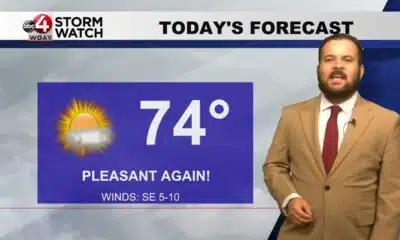News from the South - Florida News Feed
Insurance regulators struggle to explain why stunning 2022 report wasn’t made public
Insurance regulators struggle to explain why stunning 2022 report wasn’t made public
by Mitch Perry, Florida Phoenix
March 14, 2025
Florida lawmakers peppered the state’s sitting and former insurance commissioners for three hours on Friday to demand answers about why they didn’t bring immediate attention to a 2022 report detailing money transfers from Florida insurers to out-of-state affiliates.
At the time, Florida property insurers were pleading for legislative reforms because of liabilities from major storms and excessive litigation. Nevertheless, they were paying billions of dollars to affiliated companies, the document found.
The Florida Office of Insurance Regulation (OIR) commissioned the report, prepared by Risk and Regulatory Consulting, in 2020 and it was published in March 2022, several months before a special legislative session made it harder to sue insurance companies.
House Speaker Daniel Perez called Friday’s meeting of the House Insurance & Banking Subcommittee following a bombshell Tampa Bay Times story about that report, which found that insurers who were claiming financial ruin after Hurricane Irma in 2017 and Hurricane Michael in 2018 had paid $680 million in dividends to shareholders while simultaneously funneling billions to affiliated companies.
The report showed that 53 insurers reported a total of $61 million in net income, while their affiliates, known as MGAs (managing general agents), reported $14 billion in income.
Hillsborough County Republican Susan Valdes asked David Altmaier, who was insurance commissioner at the time the report was commissioned, whether he found the disclosure alarming.
“Red flags”
“It certainly raised some red flags, which is why it was important for us to determine whether or not this was accurate,” Altmaier said.
Lawmakers pressed Altmaier and his successor, Michael Yaworsky, about why the office never made the report public. Their response was that it was in draft form and not ready for general release.
“A draft is a very real thing to us, and it is an indication that it is not a completed product,” Yaworsky told the committee.
Under further questioning, Yaworsky mentioned discussions that concluded sometime later in 2022 between the OIR and Rise & Regulatory Consulting “to perfect the document.” He said he didn’t know the details, adding that his office was dealing with between six or seven companies at the time that had gone through insolvency, as well as investigating other insurance companies.
“I think it’s possible that they were simply overwhelmed,” he said.
Speaking under oath, Altmaier said the office had become aware of transfers with affiliated companies in 2014, but it wasn’t until 2021 that they were able to get legislation passed that specifically authorized them to investigate the affiliate payments.
“Even before we got this draft report, the office was very mindful that this allegation was out there. We were very mindful that we needed to increase our authority to answer these types of questions, not just for you but for your constituents and our consumers and all kinds of other stakeholders,” he said.
Altmaier wasn’t able to answer why, if he thought the report was so important, he didn’t follow up when the OIR received it in 2022.
“Hindsight being 20/20, there’s probably some opportunities where I could have poked a little bit to make sure that this work was continuing. But, as the commissioner said, we were dealing with a lot,” Altmaier said.
Pinellas County GOP Rep. Adam Anderson asked to what extent can excessive affiliate fees affect policyholders’ premiums?
“There is a factor in there that is fees that you pay to your affiliates,” Altmaier replied. “If that’s being done correctly, then that’s a reasonable fee to have in the rates. One of the reasons why this work was so important to us was, if this is being abused, then it can have detrimental impact on policyowner premiums. The challenge is, we didn’t fully answer that question during my tenure,” he said.
Yaworsky, who served as chief of staff to Altmaier between 2017 and 2021, was named Insurance Commissioner in early 2023. He said it wasn’t until late last year that he was even aware of the report.
That prompted several members of the committee to ask why he didn’t share the information from the report when appearing before lawmakers since then. They wanted to know whether the affiliate payments were directly responsible for the escalating property insurance rates that have become the single most important issue to Floridians, according to multiple polls taken over the last year.
Yaworsky pushed back, disputing that the transfers explain why some carriers have become insolvent or closed their businesses in Florida.
Insurers continue to blame excessive litigation
“I think the problem at its crux with companies is pretty easy to demonstrate — that it was … due primarily to litigation, but also natural catastrophes and the cost of reinsurance,” he said. “The companies went broke because rates simply could not be raised fast enough to accommodate that, and the market did not exist to support that. There’s not a lot of evidence that MGA fees or affiliate entity fees were the proximate cause of any insolvency.”
Also at the center of the discussion was what is considered a “fair and reasonable” amount for those companies send to their associated groups. The state of Florida to this day does not have a defined standard in law about what is fair and reasonable.
The Tampa Bay Times made a public information request to see the report in 2022, yet did not receive it until late last year. Several committee members questioned what led to that delay. “There was so much going on in 2022 that this did not take the priority,” Yaworsky said. “That’s a plausible explanation for what happened here.”
Some lawmakers reacted with disgust.
“Our purpose here today is to find out if insurance companies have been allegedly ripping the citizens of Florida off. Why rates are so high? We want to find that out. And this report’s the state’s attempt at determining the answer to that,” said Palm Beach Republican Mike Caruso.
“Yet it’s still in draft form. It’s only seven pages long. It deals with data from 2017 to 2019. Today’s 2025. And I find it, as a legislator, that’s outrageous that we’re getting something that’s so antiquated and so full of flaws.”
Caruso and other lawmakers asked whether the office plans an updated report. That remains uncertain at this time, although committee chair Brad Yeager said after the meeting that he believed lawmakers would push to make that happen.
The report cost $150,000 and was paid for by a trust fund within the OIR, and not from taxpayer money.
The future
In his State of the State address last week, Florida Gov. Ron DeSantis proclaimed that the state’s homeowners’ insurance market is finally seeing some stability, noting 130,000 new private policies over the past year and that Florida had the lowest increase in rates of all 50 states.
However, the Tampa Bay Times reported earlier this week that the vast majority of the almost 1 million policyholders with state-backed Citizens Property Insurance Corp. will pay higher rates beginning on June 1. Known as the property insurer of last resort, it remains the largest in the state in terms of the number of policies written.
YOU MAKE OUR WORK POSSIBLE.
Florida Phoenix is part of States Newsroom, a nonprofit news network supported by grants and a coalition of donors as a 501c(3) public charity. Florida Phoenix maintains editorial independence. Contact Editor Michael Moline for questions: info@floridaphoenix.com.
The post Insurance regulators struggle to explain why stunning 2022 report wasn’t made public appeared first on floridaphoenix.com
News from the South - Florida News Feed
Delray Beach leaders fight for rainbow street mural during Florida hearing in Orange County
SUMMARY: Delray Beach city leaders traveled nearly 200 miles to a Florida Department of Transportation (FDOT) hearing regarding the state’s request to remove a rainbow pride mural at Northeast Second Avenue and First Street. The mural commemorates the Pulse nightclub shooting anniversary and was painted in 2021. No final decision was made; the city must submit supporting documents by September 5. City attorney Howard DuBosar argued the mural is street art, not a traffic control device, and cited local control under “Home Rule.” FDOT emphasized safety and state standards. Governor DeSantis supports removal of such messages from crosswalks. The mural remains for now pending the decision.
The post Delray Beach leaders fight for rainbow street mural during Florida hearing in Orange County appeared first on www.clickorlando.com
News from the South - Florida News Feed
Rudy Giuliani leaves the hospital after being injured in a car crash in New Hampshire
SUMMARY: Rudy Giuliani, 81, was released from the hospital after a car accident in New Hampshire where the vehicle he was in was struck from behind on Interstate 93. Giuliani sustained a fractured thoracic vertebra, multiple lacerations, contusions, and injuries to his left arm and leg. He and the driver, spokesman Ted Goodman, were helping a woman who reported a domestic violence incident when the crash occurred. Both suffered non-life-threatening injuries. The crash’s cause is under investigation, with no charges filed. Giuliani, known as “America’s mayor” for his 9/11 leadership, later served as Trump’s personal attorney, involved in controversial election fraud claims.
The post Rudy Giuliani leaves the hospital after being injured in a car crash in New Hampshire appeared first on www.news4jax.com
News from the South - Florida News Feed
Polls to open in Florida Senate, House special elections. How to find out if you should be voting
SUMMARY: Election Day in west Orange County, Florida, on Tuesday features special elections to fill two Florida Legislature vacancies in Senate District 15 and House District 40. Senate District 15 includes northwest Orange County areas like Winter Garden and College Park. The seat was vacated by the late Sen. Geraldine Thompson. Democratic State Rep. Bracy Davis faces Republican Willie J. Montague for the Senate seat. In House District 40, RaShon Young, Davis’ former chief of staff, won the Democratic primary and will compete against Republican Tuan Le and write-in Chris Hall in the Sept. 2 general election. Polls open 7 a.m.–7 p.m.; vote-by-mail ballots are due by 7 p.m.
The post Polls to open in Florida Senate, House special elections. How to find out if you should be voting appeared first on www.clickorlando.com
-
Mississippi Today3 days ago
DEI, campus culture wars spark early battle between likely GOP rivals for governor in Mississippi
-
Mississippi Today7 days ago
Judge: Felony disenfranchisement a factor in ruling on Mississippi Supreme Court districts
-
News from the South - North Carolina News Feed5 days ago
Parasocial party: Why people are excited for the Taylor Swift, Travis Kelce engagement
-
News from the South - Louisiana News Feed6 days ago
K+20: Katrina alters local health care landscape, though underlying ills still the same
-
Local News7 days ago
Parents of missing 7-month-old California boy are charged with murder
-
Our Mississippi Home6 days ago
The Great Backyard Recovery – Helping Birds After the Storm
-
Local News5 days ago
Police say Minneapolis church shooter was filled with hatred and admired mass killers
-
The Center Square6 days ago
U-M Health ends transgender treatment for minors | Michigan











































